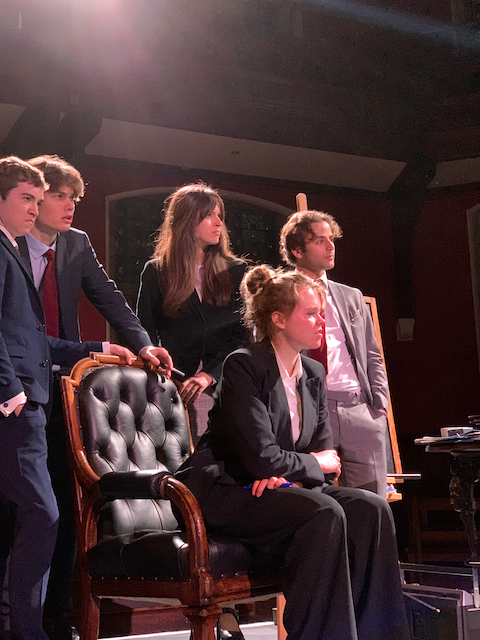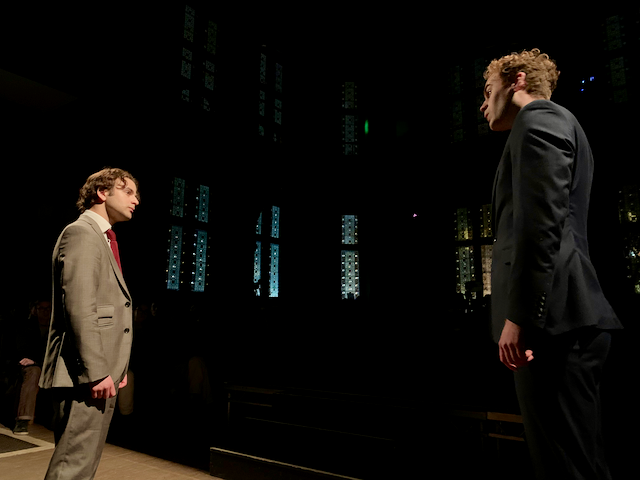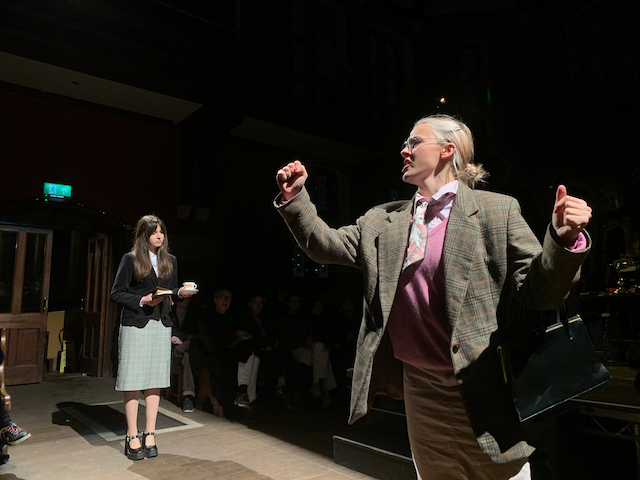This House by James Graham is set in the 1970s, starting just before a general election. Pressure boils from either side with whips struggling to grasp onto key regional votes and as the dust settles, it becomes clear that the country is split. Exploring the turmoil involved in navigating a minority government through a hung parliament, the play presents us with determination, desperation, and doom.
It provides a refreshing perspective; we follow the ‘engine room’ of the House of Commons. Based between 1974 and 1979, we watch through very tense periods in Parliament, with Labour and Conservative whips working hard to defend and destroy the government respectively. After a months-long deadlock, a second general election earns the Labour government a majority of 1 seat — meaning that every Labour MP had to vote whenever the Government needed to pass something through the house, occurring multiple times per day.
With scrambled attempts of tracking colleagues, ‘flushing’ them out of the toilet if they are close to missing the vote, unstable coalition and cross-party agreement attempts, the situation gets more difficult as by-elections are lost and members defect to other parties. The ‘regular channels’ are closed. ‘Pairing’, informal agreements between whips where one member from both sides miss the vote intentionally for better stability, is terminated over allegations of cheating, and the ultimate cost is not in banknotes, but in bodies. The Government was finally defeated in a vote of no confidence — by one vote.

On its closing night, the chamber was packed. Seating arranged around the staging, in a debate-style way, and over its two-hour runtime, the audience was delivered an impeccable and immersive experience which left a lasting impression, with such sustained depth in every character, particularly with multiple roles.
Early on, the theme of class settles in as the two sides of the house accustom themselves in their new respective offices — revolving chairs being a surprising, yet accurate, symbol of status. Skilfully tuned accents and dialects present a pleasant dimension to the characters, allowing for comedic digs to show the true, underlying conflict between ‘the professional and and the comp school lads’.
Similar to the House it presents, the dynamics were fast-paced, rarely ever slowing down. For the moments it did though, the air hung still, inviting somber scenes such as Bob’s (played by Alex McGovern) moment alone when he decides to resign, or Jack and Walter’s (played by Jules Upson and Ishy Levy) periodic conversations sewn through the plot like a familiar touchstone. The lighting and blocking kept a firm, yet natural grip on the audience’s attention, as scenes flowed into one another without disruptive blackouts.

As a politics-based play, its setting in the Oxford Union cannot be overlooked, where whispers of debate still echo in its chamber. It’s this skilful use of space that was most impressive. The simple, static stage design allowed for dynamism and flexibility. The use of the balcony and the middle corridor, meant the whole room was filled with action, with acoustics echoing around. Although, I have to say the use of multimedia fell short. The projection of a video onto one side of the chamber just felt awkward and didn’t add much value to the performance. If anything, it was an odd detraction from the ‘less is more’, minimalist stage design and overall atmosphere created, leaving many a little confused by this element.
James Graham’s script, a moving and funny insight into the inner workings of British politics, was brought to life with great success by Clarendon Productions. With Charlie Mackintosh’s goal of reigniting the Union’s tradition of a yearly theatre performance, we can only hope for more.

Image Credits: Jakub Trybull


